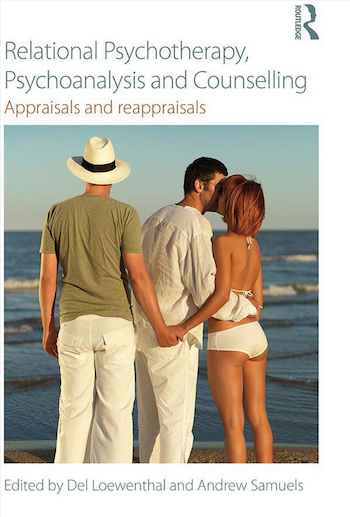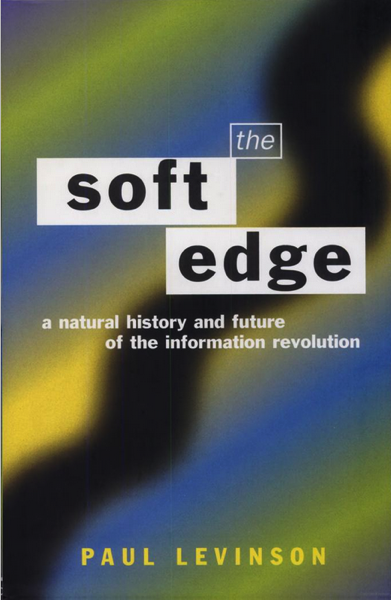Very impressed by this guy.
Listened to him being interviewed here:
An agricultural insurgency — Thursday 11 January 2018
This all sounds too good to be true. But I do trust him!
Looks like we can manage the anthropocene.
Very impressed by this guy.
Listened to him being interviewed here:
An agricultural insurgency — Thursday 11 January 2018
This all sounds too good to be true. But I do trust him!
Looks like we can manage the anthropocene.
I think they nail it here:
“Imago shifts the focus from the self to the relationship and posits “relationship” as fundamental reality of which individuals are derivatives. To embody this paradigm shift, partners must shift their focus from their own need gratification to the needs of the relationship. The paradoxical outcome of that counter-intuitive shift is that such a sacrifice will insure the satisfaction of their needs in a way that was not possible when the focus was on the self. When the couple becomes partners rather than opponents in the project of creating and enacting their dream relationship, they create a thriving relationship. This perspective rests on the assumption that human beings are intrinsically relational, that the human problem is relational rupture, that all emotional symptoms are expressions of relational anxiety and that relational repair is the only and sufficient path to human well being.”
Beauvoir, Francine; Crapuchettes, Bruce. Getting Back The Love We Had: Forty-Two Answers To Real Questions From Couples Who Feared They Were Losing Their Way (pp. 4-5). Kindle Edition.
I want to get this book.
I heard about it in this excellent podcast: Kim Hill interviews Emily Perkins — Emily Perkins – Ibsen and The Fuse Box
Thought it might be fun to offer the protagonists in The Dolls House couple therapy.
Later Monday, 23 April, 2018
I’ve read nearly every item in the book and liked them a lot. One thing that struck me was how much creative writing talk relates to psychodrama directing. I’d recommend any director of drama to read the book. Probably would work for painters or musicians as well.
People who impacted on me. Roughly in the order they did so. How I came to think the way I do, the intellectual & cultural biography. The juicier life story with real people is another, more personal story. The post about this post.
I had a few pop idols when I was a teenager. Mostly my mentors were people living around me. Then something new happened in a moment while reading Bertrand Russell that changed how I saw things. I think the book was called “On Morals”, but that does not seem to exist. Maybe it was Marriage and Morals but I can’t find the line I recall. “Morals is the science of how to live one’s life.” That does not Google, but that is what I recall. And as a teenager how to live my life was a burning question – that there was a science for that was very appealing. Further reading did not help much in a practical way (I will add Zorba The Greek to the list), but I began to read philosophy, and loved it.
I think of Russell as of marker in the sand for humanist, atheist, positivist rationality. ““I believe that when I die I shall rot, and nothing of my ego will survive.” I liked that. It summed up the atheism I was bought up with. (Now I think it is all a bit more mysterious. Maybe the universe forks and folds?)
And for a readers digest version of philosophy there is nothing to beat A History of Western Philosophy
And he was part of Ban the Bomb. And The Committee of 100
Talking of pop stars – this one was the first one I noticed. I was about 12.
Great stuff, but really, my main heroes were not popstars.
We had a book of his paintings at home, I saw a movie and read a biography. Later I saw exhibitions. Loved it all. I am attracted to outsiders.
CMW
Peter Pinney
The link to an album presented in Adobe Flash no longer works
Why he’s on the list.
Led to travel, New Zealand mountains.
Zorba the Greek
Colin Wilson
His book The Outsider led to my big shift at about same time as Peter Pinney
The book is a series of essays about what he calls outsiders, but presented from Wilsons existentialist position. Again how to live life! I identified with the central theme that outsiders are those who see too much. The main thing I got from the book is that I follwed through on every writer he mentioned. Now I knew who to look for in the library.
Colin Wilson is a bit of an embarrassment. He has an elitist perspective. Outsiders are artists and gifted, but not “supermen” above the doomed masses. He has an idea that the outsider has failed on some journey to enlightenment. I don’t like that type of spiritual approach to life, and did not even as CW put it forward.
Ivan Illich
Ludwig Wittgenstein
Marshall McLuhan
Stewart Brand
Karl Marx
Moreno
Osho
James Hillman
https://www.instapaper.com/read/1464712293
Thomas Moore
Marriage dead or alive
Marshall Rosenberg
Harville Hendrix
Hedy Schleifer
Bill Doherty
How Smartphones Are Killing Conversation
A Q&A with MIT professor Sherry Turkle about her new book, Reclaiming Conversation. – Amazon
Sherry Turkle has been a thorough investigator of the media – and I like her experiential – ethnographic approach in her first book Life on the screen – Amazon
We are in the early days of technology. Can we develop etiquette – a new norm in the way we have about things like eating with your mouth full. Will parents say, “Don’t put your phone on the table while we are eating.” ? It could happen. We changed norms around smoking. Around sexism. This interview begins to articulate new norms without being anti tech,
Relational Psychotherapy, Psychoanalysis and Counselling: Appraisals and reappraisals [Kindle Edition] Del Loewenthal (Editor), Andrew Samuels (Editor)

In the light of the last post I’m keen to read this book and pleased its in Kindle format. The image on the cover is evocative! It shows well the potential for psychotherapy to create ambivalence in a relationship.
So much on my mind – I can’t keep up with it!
Books to read on relationships – “Marriage is the medium”
I have been reflecting on the role of evolution in relationships.
An hypothesis follows and then a long list of books. Continue reading “Evolution and human behaviour and culture.”
This book is on my list because I’m exploring the relational paradigm. Archetypes of Relational Space? What comes up is that marriage is a medium. This might be relevant?

I can get the paper version here for 1c But I want a digital one… And that is here on Google
(Dead link)
~
There is a lovely video of Paul Levinson on Amazon
~
While on the journey I downloaded a sample of another book, this one looks like fun. The Plot to Save Socrates
(Thanks Brian for pointers)
Monday, 27 September 2021
Still can’t find a cheaper digital one.